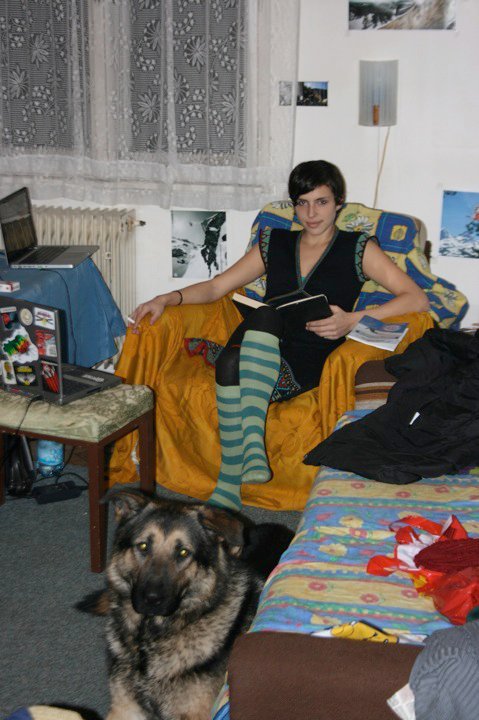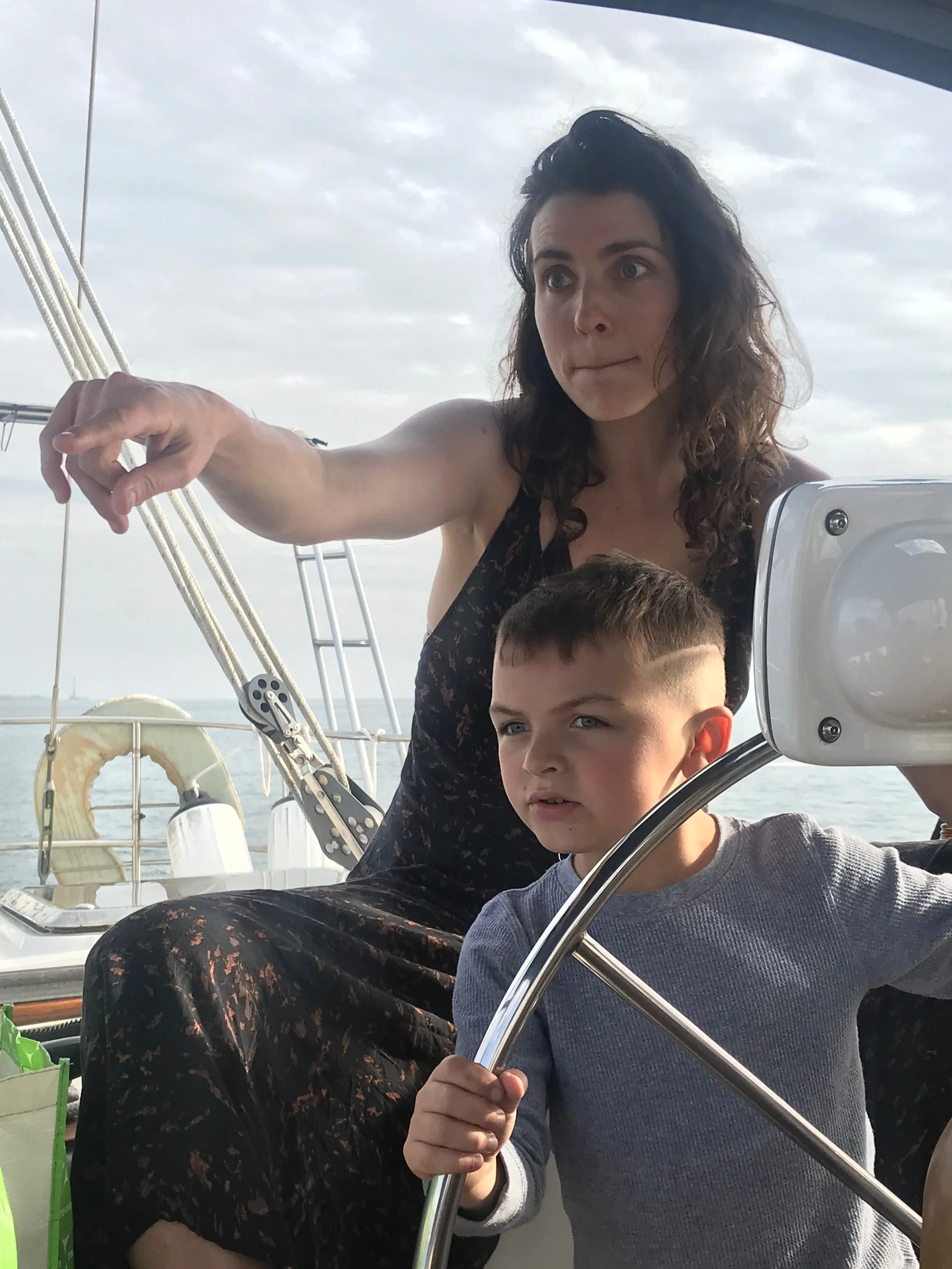Jordan Siegel
Founder, Liminary
also known as Josie, if and only if you love me
My childhood was two blocks long, one farm deep, and oceans wide. It was two blocks to the Chapin School, the all-girls private school I attended for 13 years on the same street as the spindly tower we slept in on the Upper East Side of Manhattan in New York City. Weekends my family spent at Echo Hill Farm, the 100-acre refuge in rural New Jersey, where my heart and imagination dug their deepest roots. And, on every imaginable holiday, we were on an airplane: to Spain and Italy, to Australia, to Africa, to South America, to wherever my parents determined we would go. This is one of the great blessings of my life as a child: I believed that I could make friends everywhere.
At the Farm every warm-enough weekend, I begged to sleep outside in the pop-tent my grandma gave me, to the bemused confusion of my city slicker family. I liked the kinds of dreams I had when I slept on the ground. I remember once I tried to excavate the god I found in an oak tree, moved by an uninitiated zeal that I could not explain. This violated the rules of the secret Earth-based religion by big sister created for us but I had to find god wherever I could. Since then and more cleverly, I have sought the dirt and heave of the good, dark Earth like a great, complex, disorganized religion. Her musk fragrances my bones.
I have had the good and all-too-unusual fortune of being able to follow the many scents of my purposeful curiosity through many corridors, labyrinths, and corded hurlings into the beyond. My learnings are on record and off — ecstatic and ongoing discovery of earth and the sacred, revelatory patterns of meaning and power, intimate apertures of communication and the right stewardship of grace, kinship, and cooking, lots of cooking.
Here, to lay it straight:
My undergraduate career at Davidson College in North Carolina centered around English literature, where I studied the power of story + the compulsions of meaning and the body. During that time, I did a harrowing few years’ stint in the invisible, chemical dungeon of pharmaceutical domination of attention and wildness into spiritual sickness and numb quietude. I began to spring out of that with the help of the writings of Pema Chodron and Chogyam Trungpa Rinpoche, and the clever stoicism of Caleb the ice-eyed dog.
Upon graduating from Davidson College, I moved to Prague because it was farther than where I came from, and because I could indulge my powerful desires to feel fully expressed in art, love, and wildness. I lived in a flat of international transients and artists – a beloved Korean film-maker, a Chinese transwoman herbalist, a Finnish Duncan dancer, a Swedish anti-car activist, and a truly beautiful and bizarre rotation of eccentrics. I was teaching English part-time and enjoying youth and freedom full-time. I sought experiences in extremes, and never settled on a good mood.
I fell in love with a really darling, really daring lumberjack and freestyle skier, and finally left the city to be with him in a small village in South Bohemia with his brother. It was romantic and tragic, and that was how I wanted it to be then. I had never learned balance and did not know to value it.
With little else to do, I followed the brothers into the forest where they did their tree work. I found myself among mosses and wild berries, hearing and feeling the breath of the forest dancing around me. I sensed real life. The wind beckoned me and, for the first time in my life, I ran without a whistle or a stopwatch. I ran through the forest, through mud and puddles, through rolling hills and spiny brambles, over railroad tracks and old stonewalls. I ran until I heard my heart beat my ribs; I ran until sweat dripped from my fingertips; I ran until I remembered that I was alive. Then, I got deported.
Back in the United States, I discovered that I no longer had a stomach for city-living of any kind. I set out for the Pacific Northwest and ran out of money in Colorado where I’ve been for the last 15 years.
By a stroke of good fortune, within a few months of arriving in Boulder, I landed a teaching job at a creative charter school for gifted students in Thornton, Colorado where I developed some radically enlivening curriculum, like live action role-playing (LARPing) comparative humanities (1984 v. Brave New World) and launching a school-wide animal husbandry project with a flock of chicks. I had started studying Permaculture Design in 2013 and undertook it with an enthusiasm common to those who discover it, stacking the functions of teaching animal care, simple construction, community organization, and business acumen selling eggs. Teaching at the charter school was incredibly enriching in many ways, and incredibly depleting in others. After five years, it was time for me to move on.
I spent a couple of months in Peru at the Paititi Institute belly-laughing with god, became a teacher of Earth Ways Yoga in Colorado, and starved through a couple of weeks in the Utah wilderness with Boulder Outdoor Survival School. I had started making yearly solo trips into the canyon lands of Utah to countenance vastness, a specific beloved creek, and electric blue dragonflies with secrets to keep. At BOSS, I learned what technology really means (for example, a spoon), and how deep physical and spiritual reserves can go, especially for the young or determined.
Still, in my inquiries into the nature of liberation, I could not wrap my head around the distribution of and obedience to power in one of these worlds we share, so I applied to study law at the University of San Diego in 2017. Why do people follow the law, and what makes it so powerful in people’s eyes? I didn’t get it.
I remember how strange it felt to read cases involving gruesome injuries, horrific abuse, or tragic death, and then come to class for a totally hygienic lesson on issues of improper jurisdiction or judgment-proof plaintiffs or joint and several liability. The dispassionate coolness of the law juxtaposed with the actual suffering of real people, ecosystems, and animals had me doing course readings with prayer beads, invoking compassion for all beings with one hand and highlighting issues and reasonings with the other.
I transferred to the Peace School at USD and graduated with my Masters in the Arts of Peace and Justice, with a secret background in law. I wrote my thesis on ritual, art, and revolution; or, as it is more easily-digested in academia: liminality and structures of meaning and power. This work remains some of the theoretical backbone underlying my practices and professions, though it’s gotten considerably more interesting now that it’s become so specific and particular and paradoxical as to be unwritable.
I also fixed up an old Gulfstar sailboat.
That was fun and healing.
I can barely believe there’s so much more to this story. I guess I’ve been alive and active longer than I realize.
in 2019, I became a trainer of Authentic Relating with the last cohort of now-defunct T3, which restored some degree of mysticism to the practices of relational attention and cognitive empathy, and generally gave me a keen palette for distinguishing between forms and (likely) intentions of communication and attunement.
When Covid first hit, I offered a timely teaching of my own device and delight called the Liminal Leadership Crash Course, the first offering of this new organization Central Edge Leadership. It was designed to give folks useful frameworks for navigating the in-between, and for detecting and shifting patterns of behavior, relationship, and meaning. It was well-received and spawned a few inspired offshoots. Then, in the stagnating dis-ease of the prolonged Covid era, I studied with the Conscious Dying Institute to become a Death Doula and with the Colorado School of Clinical Herbalism to have the foundations of Medical Herbalism.
Here, the story gets weirder and the tracks harder to follow. I’ll speak to the fruiting bodies of the mycelial maturation that was happening within the ground of my being.
In 2020, when the world was beginning to shut down with Covid-19, I created and taught a course called Liminal Leadership, on strategies for making self and reality more malleable to the moment. That’s a hilarious way to describe it, and roundly inadequate. I’m teaching it again this summer (2025), this time just for the ladies. It’s a Mystery Work, though, really. Email weaver@themysteryworks.com with something beautiful in your heart to begin to sniff your way in.
In 2021, I was invited to direct a 40-day Academy for revolutionaries and paradigm-midwives that included ice baths at dawn and two weeks in a basement with a neo-shaman school that I later graduated by expulsion, having followed the thread of that school to a medieval palace in Portugal.
Expulsion was a fascinating experience for me, and I was caught with a stunning amount of grace by the forces-that-be. From the palace, I ended up in a small white stone cottage on the ocean’s edge, several walls of which were emblazoned with a hand-painted prayer : “cura cura cura” : “heal heal heal.” From there, I found my way to the centuries-old farmhouse of one of my dearest friends where my liminal inquiry was so open as to be truly existential: to be or not to be?
How much farther could I go from the civilizational centrality of my birth in a skyscraper in New York City to, here, a remote village in Saxony, flung out of the fringiest thing I’d ever done? How many edges had I gone over to end up nowhere at all? How broad was this liminal gape? Would this ritual of initiation ever fucking end?
I fell out of love with abstractions and ideas, out of love with certainty and ambition. I learned to become quieter and to bring my gaze closer, to seek out only that which I could actually smell or taste, eat or weave. I wanted to learn how to follow the stories that the Earth keeps and tells, and so I attended Tom Brown’s Tracker School in one of the last years to receive Tom’s unkillable, razor-eyed presence before he died.
I came back in love with the ground and the buried possibility of something real growing in it.
I started the Vision Groundworks Rootcamp for visionaries wanting to plant their visions into real soil — that is, their bodies, their voices, their altars, their homes, their relationships. For 6-8 weeks, I led rounds of people to create their Devotional Compasses (there is a version of the instructions for a simple compass you can have if you ask), to create tools to navigate the openness of the in-between, and to do so with an orientation that comes from one’s deepest devotions. Rooting, rooting, rooting. I broke ground on the land I’d lived on for the better part of a decade and began to live IN the land, to bury seeds and water them with sweat and tears, coax them to stem up with song and bloom with praise.
Fuck, I cannot even believe there is more.
the Mystery Works, Caleb + the lion, grief + seeds. I’m so bored writing about myself.
The living Earth has my whole allegiance, and it is her designs to which I look for mine. Fermented by diverse experience and requisite rest, I am a living culture, a substrate for intimacy with the real. Thank you for reading this. Earth bless you.












